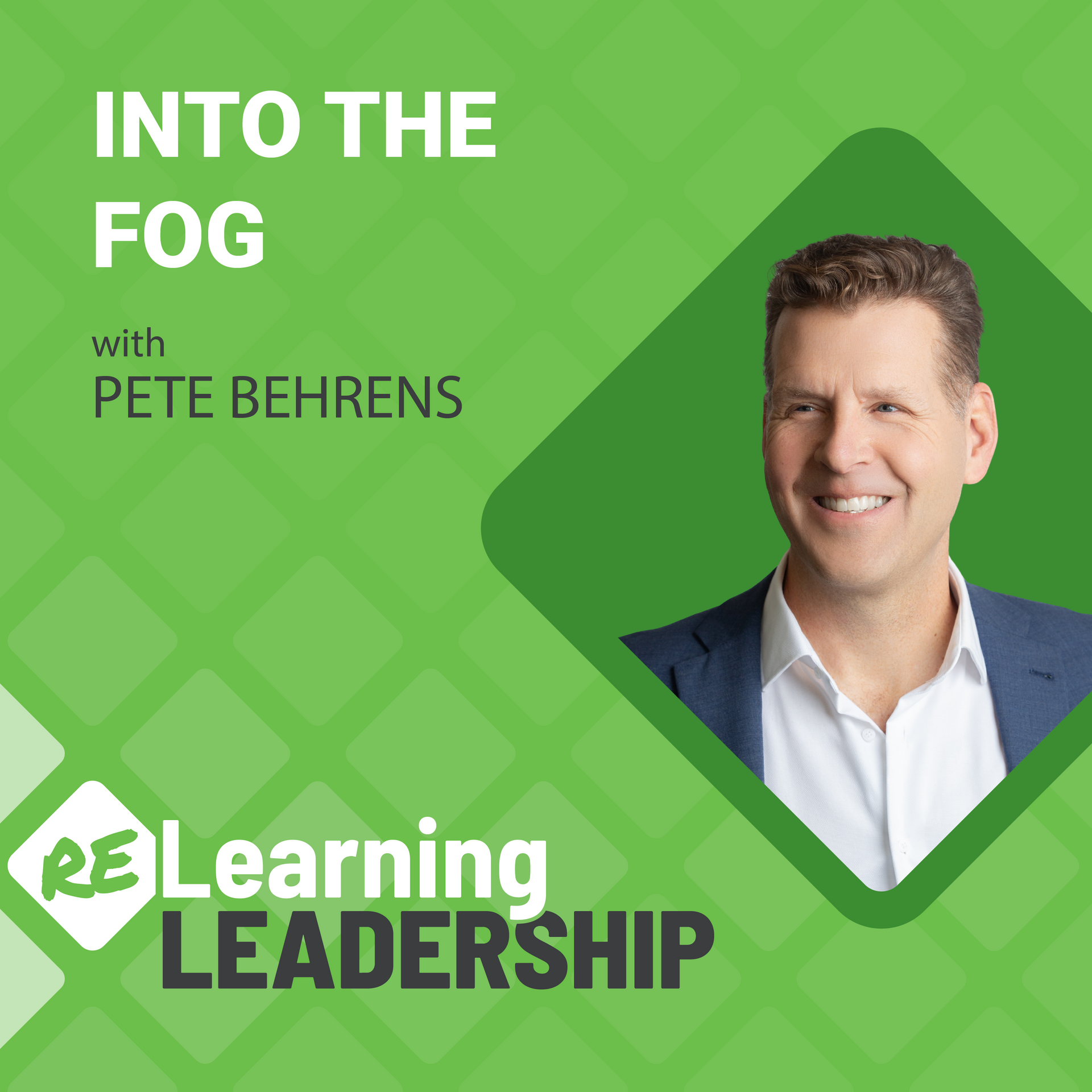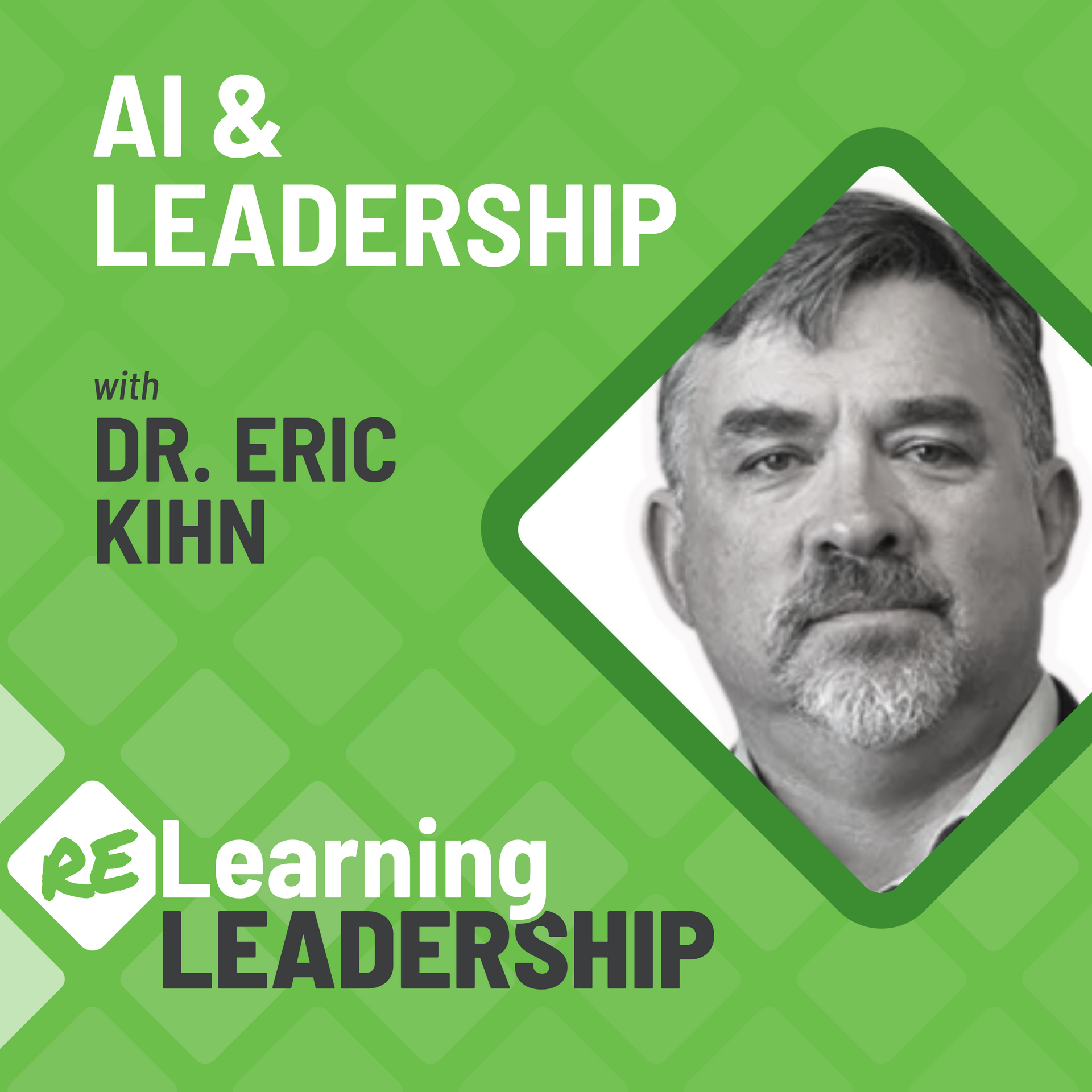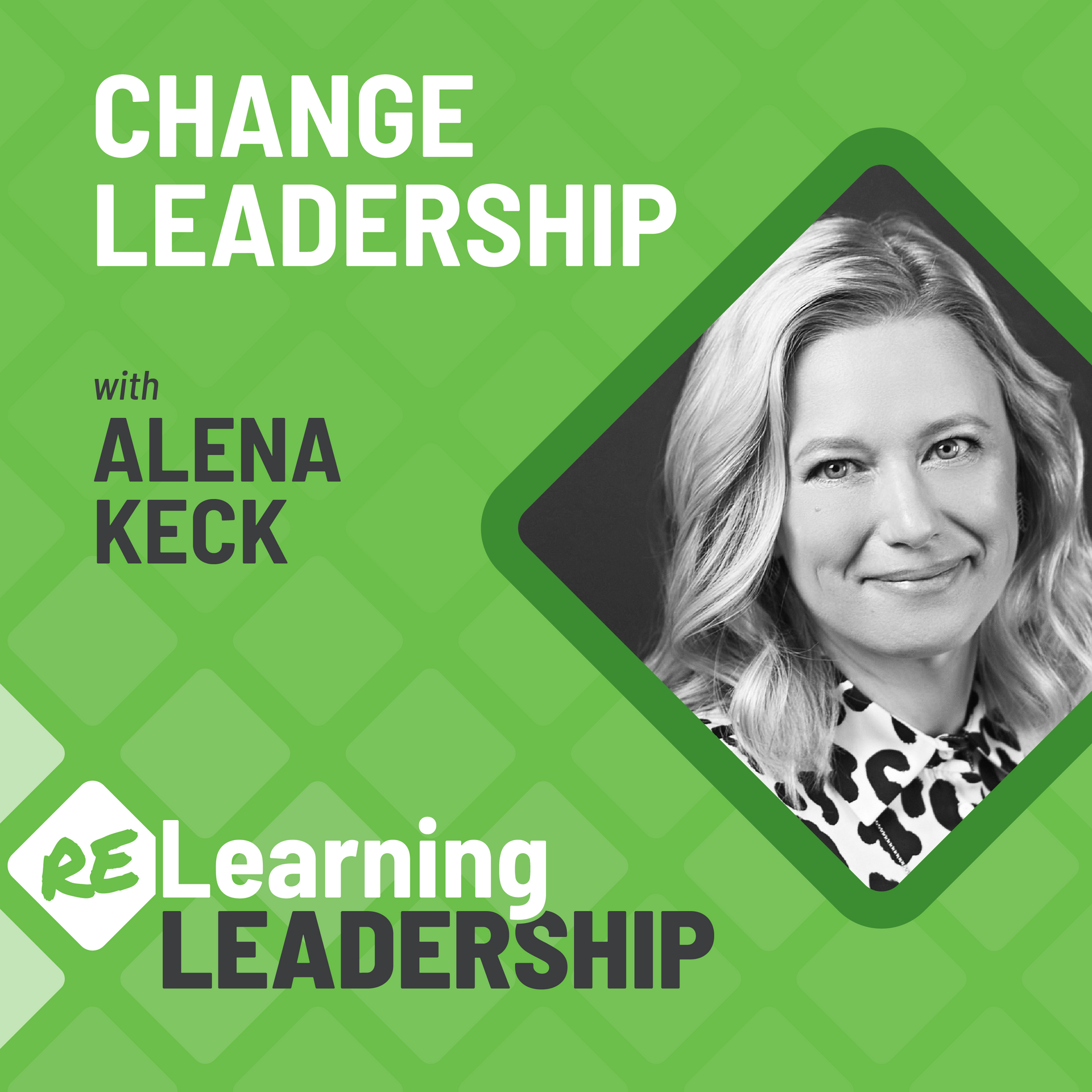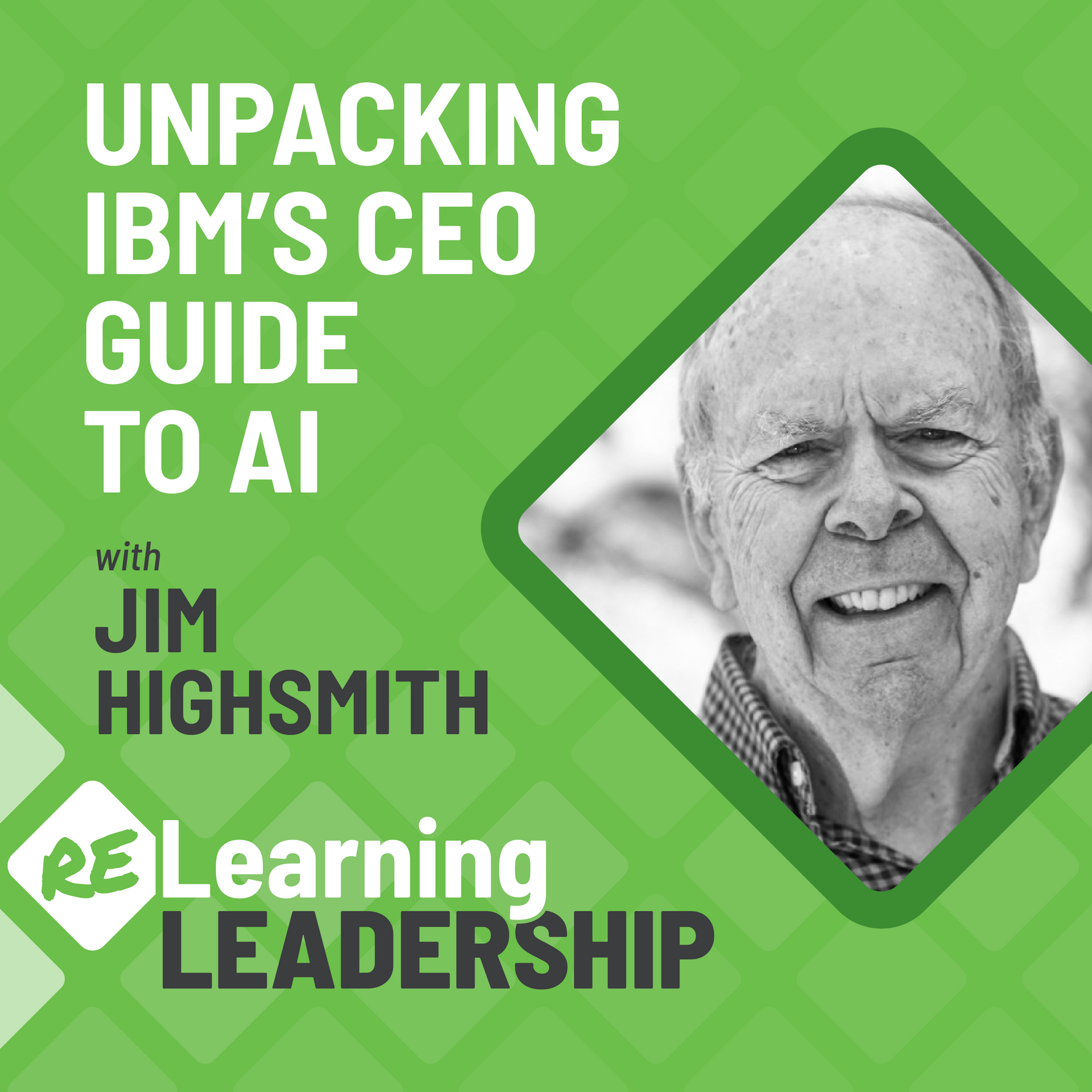15: Most Won't. I Will.
What does it take to succeed as a leader?
Nick Berendt shares his journey from drug dealer serving time to HVAC business owner reaching $2M revenue.
His mentor, and former circus performer, Shawn Thomas shares how leaders like Nick are only limited by their own thinking and environment, and by hacking into them can place us on a new growth trajectory.
Together, their story can help us become better leaders.
Nick Berendt, Founder, Ace Heating and Cooling
Nick Berendt is a self-professed Guns N’ Roses fan with tattoos and RV mud in his blood.
He built his Rheem HVAC business (Ace Heating and Cooling) out of sheer force and determination. But, then he discovered something more powerful than force and quickly tripled his sole proprietorship into a full-fledged, thriving business. “I can easily help other small service businesses get that first step into the $500k — $750k area.”
Nick compares business to playing hockey. It looks like force, but when you play it, you realize it’s a mental sport. You just need sharper tools. Most people don’t lack talent or skills. What they need is a better business foundation to understand how to determine where the most profitable customers are from, where the marketing dollars could be better spent, how to keep track of customers, and build a good CRM.
Learning these kinds of tools from other successful people was the lightbulb for Nick. Now he’s turning on the light for others to grow their businesses.
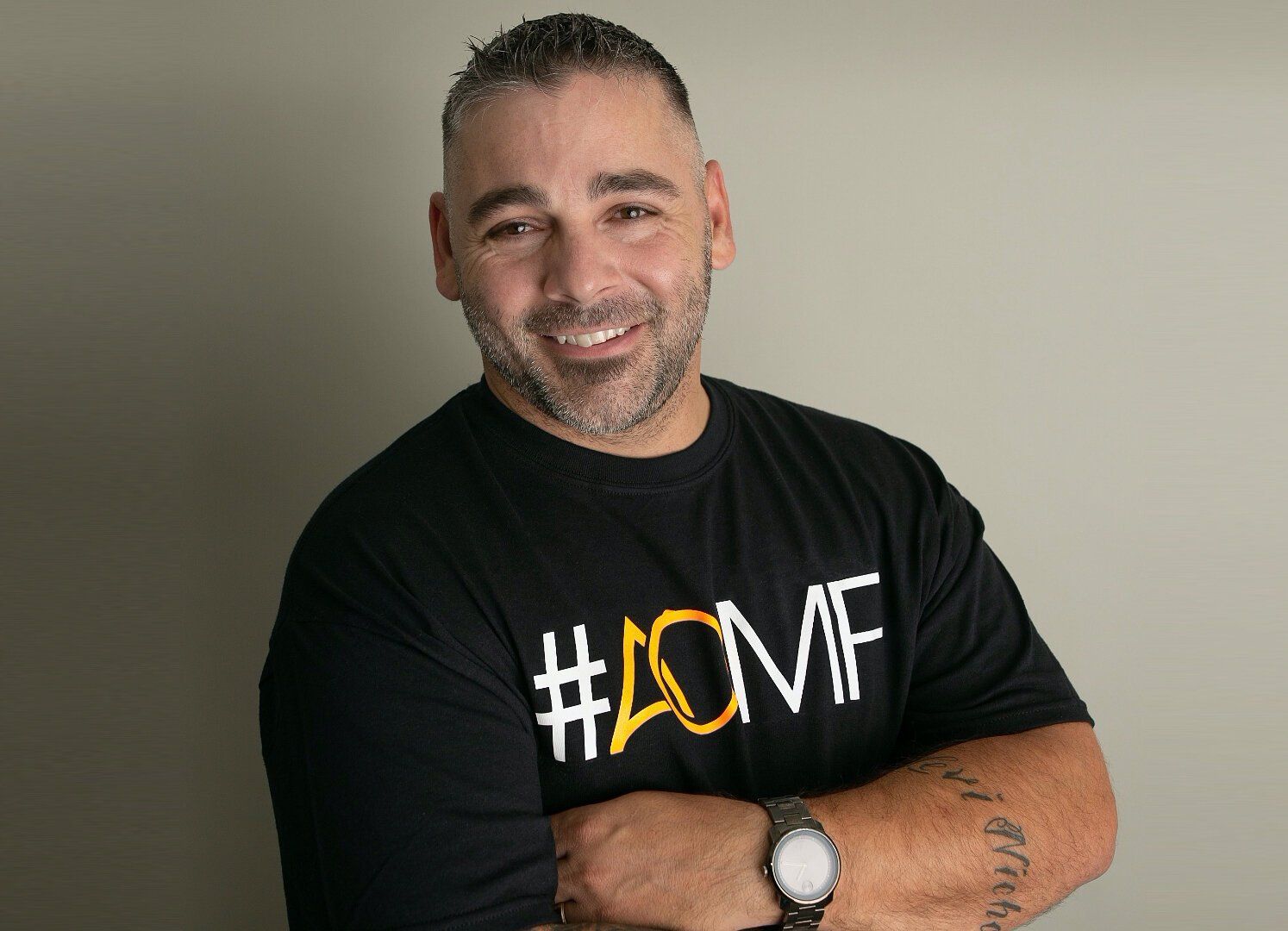
Shawn Thomas, Founder of Accelerators Organization
Shawn Thomas is an entrepreneur, TEDx Speaker, Inc. 5000® award recipient, and mentor to thousands under his moniker Ask A Millionaire® and Accelerator Organization.
For more than 6 years, Shawn has been performing social media Q&A livestreams and has been deemed The Original Livestream Mentor®. Shawn was raised in the USA to a military family and was the first member of his family to become a millionaire. He did this with only some traditional college and street smarts.
At 21 years of age, Shawn was awarded a recording contract with Warner Bros. Records® and travelled the USA with Ringling Bros. & Barnum and Bailey circus and part of a trio boy band call N/Motion™. N/Motion™ played Madison Square Garden, The Omni, LA Sports arena and more including stints on MTV, Entertainment Television®, and was also featured in virtually every teen magazine like Sixteen®, Billboard Magazine®, Tiger Beat®, Teen Machine® and many more.
During what Shawn calls his “decade of desperation”, ages 23-32, Shawn cut his teeth attempting to become a business owner with zero training. But armed with sales skills and determination and a dream, Shawn never quit. This decade included bankruptcy, car repossession, asking parents for money, odd jobs, and many a sleepless night questioning everything.
A true tale of the entrepreneurial journey. At the age of 32, Shawn founded Uniguest®, a company selling business center and lobby computers to the hotel industry. During the 11-year run of Uniguest®, Uniguest® achieved great success including multiple Inc. 500® and Inc. 5000® awards as well as many local Nashville Business Journal® awards including the coveted “Best in Business” award in 2010.
After the successful sale of Uniguest® in December of 2013, Shawn took time off to decompress and start a new life. This is where he started Ask A Millionaire® in 2015. After thousands of Q&A livestreams, Shawn met the demand of his audience and founded his latest venture Accelerators Organization™ to help mentor and coach small businesses and help them achieve “7-Figure” status.
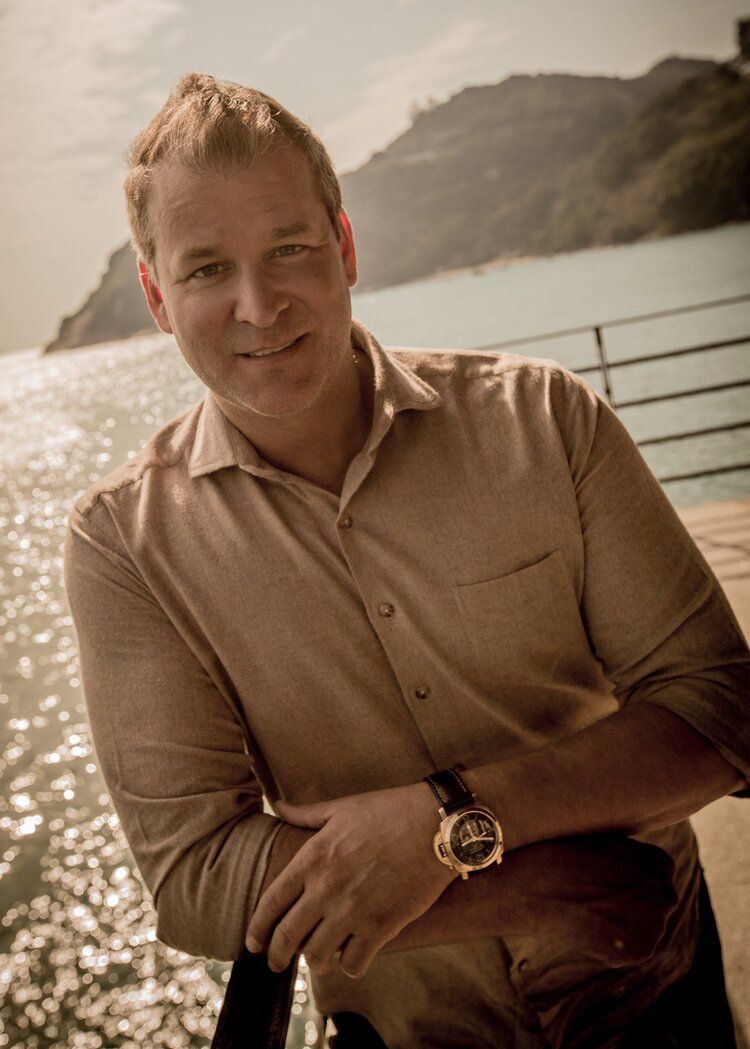
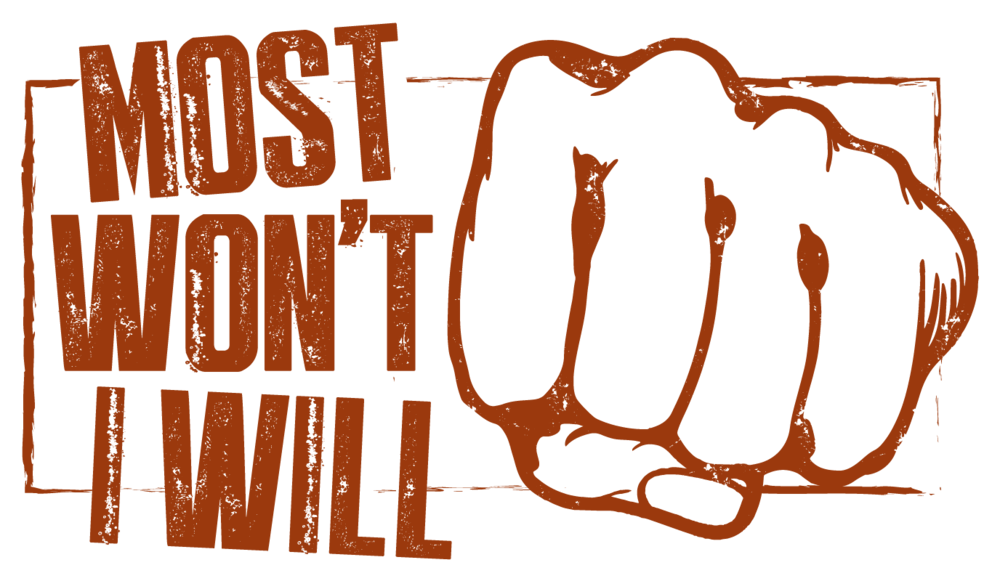
Most Won't I Will
Nulla cursus tellus nisl, quis lobortis nisl condimentum eget. Curabitur sit amet lacus ac justo pharetra laoreet. Donec quis diam venenatis, varius purus in, mattis mi. Suspendisse in aliquet dolor, in suscipit justo.
Curabitur dapibus ornare tellus et finibus. Fusce gravida congue lorem, sed porttitor nibh. Quisque lacinia enim eu est tincidunt, eu vestibulum ex dignissim.
Relearning from Nick's Story…
I feel privileged to meet such a courageous person like Nick who has overcome more in his life than I could ever imagine. I am also inspired by Shawn’s ability to find an intersection for a successful business that helps others succeed at life.
Here are my key takeaways from Nick and Shawn’s story…
None of us were born leaders
In our last episode I explored my own accidental leadership journey. Today we learn from Nick’s story that all of us possess leadership capacity, but require awareness, tools and a nurturing environment to bring them to light.
Seek a mentor, be a mentor
Mentoring is a two-way street. Seek someone who inspires you, can challenge you, will celebrate successes with you, and will support you when your chips are down. Then give back and be a mentor for someone who needs the same. We grow as humans and leaders from both directions.
The power of community
While each of us could do it alone, humans excel in communities where we can learn from, share with and give back to others. Our Agile Leadership Journey and Shawn’s Accelerator Organization are communities doing just that. Find your community, or create your own!
We Celebrate Joy Zimmerman’s Milestone
Joy Zimmerman, the creator of the music you hear on this podcast, is celebrating an award-winning album this summer. The
Canvas Before Us reached Top #8 on the International Folk Chart! Visit Joy Zimmerman Music.
Visit Joy Zimmerman Music
This week I was drawn to her title track, Mosaic. We all have shattered pieces in our lives. We are all messy and often times feel as if we are scattered about. And our whole selves emerge when we merge our pieces in the community of others, like a mosaic art work.

Episode Transcript
Pete Behrens:
What does it take to succeed as a leader?
Welcome to another episode of Relearning Leadership, where we explore a specific leadership challenge and break it down to help improve your leadership, your organization…and even your personal life.
Today, we meet Nick Berendt, sharing his courageous story from a jailed drug dealer to a legit business owner with over two million dollars in revenue.
Nick Berendt:
Four months later, I had my own truck, and I was running my own calls. For me, it was an easy transition. I used to sell drugs; now I'm selling furnaces. So now I can drive around with this stuff advertised on my truck. It's the same game; it's just legal.
Pete Behrens:
Joining our discussion is Shawn Thomas, mentor to Nick and founder of The Accelerators Organization, whose purpose is equipping leaders like Nick to succeed at business and life.
Shawn Thomas:
Why do we know that we want something—why do we know that we're not happy that we don't have what we want, but we won't take action? ...it's our upbringing. And we have to hack into that mindset to find out where that person was led to think the way they think today.
Pete Behrens:
Nick and Shawn take us beyond grit, determination, and pride to discover what it takes to succeed as a leader when everything around us, even our own thinking, is working against us.
I’m Pete Behrens. Thank you for joining us today. Let’s dive in!
I have two fascinating characters with me today to take us on what I believe will be a leadership rollercoaster ride. Nick is a self-professed Guns N’ Roses fan with tattoos and RV mud in his blood. He's the owner of an HVAC business. Shawn is a former boy band member, circus traveler, and TEDx speaker, who founded the Accelerators Organization, mentoring and coaching leaders just like Nick. Nick and Shawn, welcome to the show!
Nick Berendt:
Thank you.
Shawn Thomas:
Glad to be here.
Pete Behrens:
Well, people are probably thinking, “Oh my gosh, what do we got here?” So, let's start with you Nick, who is Nick Berendt?
Nick Berendt:
Well, I grew up in Chicago. In 1978, I was born. I'm 43 years old. Had a bit of a rough start in life. Moved to California after my mother passed away. Decided that, you know, getting in trouble was fun and joined with local gangs and got into selling drugs and doing a lot of dumb, dumb stuff. And once my aunt, that I lived with, found out what was going on, she shipped me back to Chicago, at 15, to live with my father and his new wife. And I wasn't having that, so I moved out on my own. And it was a point where I had to make a decision whether I go to school or I go to work. So I went to work. And then, you know, work just wasn't enough, so I carried some of the traits that I learned in Los Angeles and started selling drugs so I could afford to have an apartment. Making pizzas at 15 years old—you're not going to really support yourself that well. So, for me, I needed extra income. I was a hustler. I just needed to pay for my ways, and I didn't have anybody to depend on. So I made my own way.
Pete Behrens:
Wow. I mean, we talk about leaders going through the school of hard knocks. I think you just defined a lot of hard knocks that you've had to overcome.
Shawn Thomas:
I haven't seen people on the internet talking about that kind of side gig. [Laughs]
Pete Behrens:
You're sharing with us quite a challenging upbringing. I'm wondering if you could fast forward just a little bit. What was that early Nick, the leader, like? How did you actually get into business beyond making pizzas? And what was the mindset at the time?
Nick Berendt:
Well, after I moved back and I got in trouble, I went to prison for a little bit. When I got out, I met this girl, and I really, really liked her. And she's my wife now, of 20 years. And we got pregnant. And it was a choice that I had to make: “Well, do I start hustling again and take the chance of going back to prison, or do I do something with myself?” So I started, literally, in concrete, slinging concrete during the day, making 400 bucks a week. But I put all the dope down, all the guns down, all the gangs down and just kind of tried to raise her in our relationship. And she got pregnant, and there was just no way I was going back to selling drugs and doing stupid stuff. Because, you know,
my daughter was on the way, and I wanted to be there for that. So I just decided to go hustle.
In concrete, you get laid off in the wintertime. And, you know, I had unemployment. A friend of mine worked for a heating contractor. So I said, “Hey, I want to learn something new!” So he says, “Well, why don't you come and work with me? My boss isn't going to pay you, but you can learn.” So I decided, “You know what? I'm getting unemployment. Let's try it!” So, a couple weeks into it—and the boss man there was like, “Look. I can't pay you to do service calls, but if there's an install and you help, I'll pay you cash under the table.” Four months later, I had my own truck, and I was running my own calls. For me, it was an easy transition. I used to sell drugs; now I'm selling furnaces. So now I can drive around with this stuff advertised on my truck. It's the same game; it's just legal. So, for me, selling to people and making profits for companies—that was natural. It was completely natural for me. So I excelled really, really fast, to the point where, two years into working for the guy, I bought half of his business, just like that. And away we went.
Pete Behrens:
Well, I want to bring Shawn into this conversation. And I'm already feeling roller-coastered through this ride already, a little bit! So, Shawn, please introduce yourself for us.
Shawn Thomas:
Well, Shawn Thomas; Nashville, Tennessee. Grew up in a military family. If you know anything about the military family, you move around a lot. So as a child, I moved around a lot. We ended up in Alaska the year that Nick was born, 1978. And, at 18, MTV was a big thing for me. So, at 18 years old, I set a goal to get on MTV. So I said,
“I'm not going to get on MTV in Eagle River, Alaska. Where do I need to go?” And my mom and dad are like,
“Well, go to California!” And I'm like,
“Okay, let's do it!” Luckily, I had parents that, you know, didn't try to hold me back in life. They were always supportive, even if it was different than what they were accustomed to or what they grew up with, so I was very fortunate with that. 18 years old, moved to California. Three years later had a record deal on Warner Brother Records and a boy band that nobody would have ever heard of, but it was there. And we got on MTV, we traveled with Ringling Brothers and Barnum & Bailey Circus, when it was around. We traveled with the Blue Unit, played every major arena in the country, got on MTV, entertainment television, the teen magazines, all the good stuff. And then after the year contract, they said
“Hey, thanks fellas! You did a great job. We wish you the best with the rest of your life.” And we were done.
And at that point I said, “Okay, when I moved to California, I wanted to get rich and famous. I have experienced a little bit of fame, now it's time to get rich. How am I going to get rich?” And, like Nick, “Do I go back to school, or what do I do?” And I said, “You know, I've been reading out there in the world that if you want to be rich, you need to own a business. You know, I'll just go ahead and do that! That should be easy.” And, for 10 years, I had a decade of desperation, with no mentors or coaches, and just trying to be like Nick and just learn on my own. I realized that business is not as easy as all these self-proclaimed gurus on the internet will tell you it will be. And without any mentorship, I struggled a lot, had a lot of small business enterprises fail. And then, finally, at the age of 32, I started a company selling those business center internet kiosks to hotels that are basically in every hotel today. And had met a mentor during that time, and we were able to successfully exit that company for a nice, financially independent lifestyle for the rest of my life and took a few years off.
And I started an Instagram account—here's another fun one for you—called Ask a Millionaire. And it's still alive today. And on Ask a Millionaire, I just started mentoring people through live streams, Instagram live streams. And doing Q&A. And that's actually how I met Nick. And after doing that for a while, people started asking me, “Well, would you mentor me?” And I was like, “I don't mind answering questions, but that's not what I do for a living.” But I decided after a couple years—I said, “You know what? There's a lot of people that need mentorship. There's a lot of people that could benefit from the experience I've had.” And I created Accelerators Organization, and I mentor individuals like Nick, and I help people like Nick actually turn into mentors. Nick is actually—now that he runs a multi-million dollar company, he's actually converted, and he is now a mentor in the organization. And the ripple effect of, you know, giving back after you've made it is in full effect because of guys like Nick.
Pete Behrens:
I'm thinking,
“How do we intersect somebody selling drugs in jail with somebody in a boy band, traveling in a circus?” And you guys have just defined it here in business and leadership. So, Shawn, talk to me about that Nick you saw early on. What was the experience? What did you see?
Shawn Thomas:
Well, I saw somebody that was like me. Somebody who wanted to achieve financial success in life, was motivated by money, and simply had not met anybody who could teach him. He had a lot of grit, pure determination, did a lot of self-learning. But when you don't know what questions to ask, it's hard to know how to go out there and do a Google search. And what I wanted to provide for Nick, and what we do in our organization, is—we get to know the person. We find out their experience. I found out about his experience selling drugs. I found out his—there was a reason he was a little rough. And by getting to know where that roughness came from, I knew what resources, or even introductions to people in my network, that I needed to get to him, so he could utilize his God-given talent of grit and determination and hustle. But now implement some processes and some systems and tools to get him to the level and realize that he doesn't have to make it, rough. There are some better ways to accomplish our goal. So he just needed resources. He needed people that could help guide him.
Pete Behrens:
So, Nick, same question to you. In terms of coming into Shawn’s ecosystem, how did you find him and what attracted you to his network?
Nick Berendt:
I was on the internet searching, you know, Gary [Vaynerchuk]s, and all these people that just were so fake. And I went on to one of his live streams, and he literally answered the question without asking me for anything. And I took that information, and I applied it. A couple months later, I see he's on live again, and I went to ask another question. He's like,
“No!” He's like,
“You join my mentorship program, or I'm gonna block you!” I took it as more of a challenge. It wasn't like I wanted help. I was, like,
“Fuck this guy!” You know? [Laughs] “He's going to challenge me, and, you know, I'm up for a challenge.” But I think it was the personality and the realness. What you see on instagram is exactly what he is. There's no wool over the eyes, there's no BS, it's just straight Shawn all the time. He is who he is. He honestly cares about us, and that's not normal business mentoring.
It's a lifestyle change. If you don't know what you're missing, then you don't know what to go for. You know, our first conversations were, “You're not thinking big enough! You're not thinking big enough!” And I mean, “Well, how big do I need to think?” He's like, “A million dollars.” And I thought, “Well, Jeez, if I have a million dollars, that's a good life!” Well, then when you hit a million dollars, you realize ten million is the next step. So, it's a progression with Shawn. And he brought me from 500,000 to 750,000 to a million to a million seven last year. This month, we will cap that and do over two million this year, in a matter of two-and-a-half years, by simply giving me the information and the resources for me to develop my business and stop thinking so small-mindedly. You know, that's the key with Shawn.
Pete Behrens:
Well, those numbers are beautiful, and I'd like to dive behind the mindset or the man that helped drive that change. Do you mind maybe sharing a moment of insight? Or what was it about your change that maybe helped catapult that trajectory?
Nick Berendt:
I would really have to say that the change started to come from putting myself around people that were bigger, better, and smarter than I was and getting me away from the limited mindset of people in my family, my friends circle. Shawn got me into things that I never even thought about on a personal level. Like, I never cared about wine. Shawn introduced me to that. Shawn introduced me to food! Shawn took me shopping for my first dress clothes. You know, my father died years ago. We didn't have that relationship. My brother died when he was 17. He killed himself. I didn't have an older brother. So, here this guy comes into my life. And it's not just about business. If your mental and your personal life has to grow with your business as well—and if you don't experience those things, then you don't really know that they're out there. So, Shawn introduced me to lifestyle changes, business changes, which helped me open my mindset and trust him and say,
“Okay, you tell me what to do, and I'll do it. I'm not going to question you anymore.” And it's funny, because a lot of the times when we go down to Nashville, he'd be like,
“Are you coming?” Absolutely. I don't care if he puts it on the moon. I'll be there, and he knows it. I don't look for agendas. I just show up and
“Let's do this!” You know, because I trust him. And he earned that trust.
Shawn Thomas:
Like Nick displays, leaders are learners. And Nick brought up a great point of—he had to really drop a lot of negative ego and negative pride to say, “I really want to learn because I want to build something bigger in my life.” And he was able to do that. And it's constant learning and constant evolution like that.
Pete Behrens:
So, Shawn, tell us a little bit about how we can take Nick's story here. What is it you're doing that is applicable across more than just Nick? What are some of these secret sauces? What are some of those things that you're working on to help leaders like Nick?
Shawn Thomas:
Well, I don't believe in secrets, so I don't mind sharing everything, because there's not really much that I'm going to be able to talk about that hasn't already been talked about by the hundreds of thousands of books out there and the great leaders in the world. The main difference that is applicable to Nick, and every single person, is to quit trying to just do things on your own and relying on internet searches and—no offense! We're on a podcast, but you're not going to learn everything on a podcast. You're not going to learn anything on a Google search. You're not going to do all the self-learning on YouTube. Because at the end of the day, we can't Google a relationship. And Google would have never known Nick's story. Google would have never known his past. Google wouldn't have known what skills he possessed, what limited network he had, what limited people he had. It takes the relationships. For a good coach and a good mentor, it takes conversation, it takes two-way conversation. Not to say it's not great to do some self-learning! However, to really get to the next level, every great person talks about having a great coach and having a great person and that person has just been there and done it and knows how to get you to where you want to get, for unselfish reasons. So that's applicable to anybody who has goals that wants to get somewhere. They're gonna get there quicker by talking with a proven mentor or coach who's got a great track record of success.
Pete Behrens:
So, Nick, I know you've described that running a business is a little bit like playing hockey. Do you mind expanding on that a bit?
Nick Berendt:
Absolutely. What I've learned about leadership is that I'm not good at everything. And the things that I'm not good at, I need to outsource, delegate, to other people. And when that started to happen, it allowed me to focus on the things that I was really good at, which was actually growing the business. And that leadership has allowed me to travel as much as I have, which allows me to expand my business. Whether I move a branch down to Nashville, or here out in California, it allows me to do that. I'm not stuck behind a desk or in a truck fixing Mrs. Jones’ furnace. That's somebody else's problem now. So I can actually focus
on the business, not
in the business. And that leadership there transpires to my technicians, all the way from my service manager to my install manager to my office manager. When everybody has a clear idea of what they're supposed to do—and that's my job, is to make it clear for them—then the business basically runs itself and allows me to do what I need to do. And that means grow it.
Pete Behrens:
You just hit on probably one of the biggest quotes we like to talk about — switching your focus from
in the business to
on the business. So, for you, Nick, what does that mean?
Nick Berendt:
Focus on the business, for me, is worrying about the next step and saying,
“Okay, we're not satisfied here. How do I acquire another company? Do I make my marketing area bigger? Do I add more products and services?” And when you're stuck behind a truck all day, you can't think about that stuff. You're worried about just finishing the day. So we actually opened up a duct cleaning business inside my business, which is generating about a hundred thousand dollars a year in revenue that I didn't have before. Which means I get to employ somebody for 2,000 hours a year. And that's important, too, because I'm not doing this solely for the money. That's the byproduct of doing what I love, right?
And without all the knowledge that I'm getting from Shawn and Accelerators Organization—you know, I didn't go to school. I dropped out of high school. Didn't have a business degree. I didn't know that payroll's supposed to be at this percent, marketing should be at this percent. That's leadership. Because without those things, you can't lead your company anywhere, except for into the ground. And I think that's why most companies fail, because guys like me are either too afraid to ask, or they don't know how to ask. So, leadership is not just telling your guys what to do, as far as I'm concerned. It's paving the way for the company as well.
Pete Behrens:
Shawn, I know you've talked about this as hacking a mindset. Could you expand on what you mean by that, and what does that look like?
Shawn Thomas:
It's that mental thing that most people possess, which is,
“I want this. I know what I have to do, but I don't do it.” Why? Why do we know that we want something—why do we know that we're not happy that we don't have what we want, but we won't take action? And there's a myriad of reasons why people won't take action, and why—you know, they might call it fear or whatever they might call it. And generally speaking of my experience of mentoring guys like Nick, is—it's our upbringing. And we have to hack into that mindset to find out where that person was led to think the way they think today, and how do we hack into it and recode it so that they can accomplish all the things that they say they want to accomplish?
It is so common that people are not happy with what they have, when they really should be focusing on, “Why aren't they doing anything about it?” And, generally speaking, it's going to come from—they just haven't been introduced to the right people that take the right amount of time to build that relationship and open their eyes and say, “You can accomplish, and be, anything you want.” And that's the hacking process. And every entrepreneur that we work with is different. They all have their own different, unique story. And we, as mentors and coaches, have to go in there and figure out what the wiring is, and why it is the way it is, so that we can reframe it and unleash like a—Tony Robbins says, “Unleash the power within!” Tony Robbins would be out of a job if everybody didn't need a little mindset hacking, right? He wouldn't have a job! So, it just tells us that there's a reason that they call it a one percent, right? You know, only one percent of people have really figured out how to hack their minds to accomplish everything they want on a high-level basis. When you think about that globally, that 99 percent of the people aren't in that one percent, that's a big opportunity to help a lot of people.
Pete Behrens:
I love how you're talking about community. And that's why we formed this podcast, why we run our agile leadership community. We connect leaders and mentors. So, Nick it sounds like you have even moved from a mentee to a mentor. Do you mind talking a little bit about what that's like? What benefit do you get through that?
Nick Berendt:
Well, there's a huge benefit for mentoring young entrepreneurs. My biggest takeaway from mentoring young entrepreneurs is—it brings me back to their days, and it also reminds me of all the things that I haven't done in a long time that I should be doing. [Laughs] It's school for me, as well! You know? I have a kid that I'm mentoring now, and he says a lot of, really, young businessman stuff. And I think to myself,
“Boy, I was in that position!” If you ride a bike, it's great. If you don't ride it for ten years, and then you got to get back on it, it's fun again. And it goes,
“Oh, I should start sending out postcards!” Here I'm yelling at this kid about not sending out postcards, and I'm the same way! So, you know, you start to forget some of the things that you did as a young entrepreneur that were successful, that as you get older, and you've been in business long enough—you feel like you don't need them. But, boy, there's five percent more revenue sitting there that you just don't think about until you're telling somebody else to do it. So I
love it. I get a kick out of it. I look forward to my sessions with my guys every month. And they call me with these questions, and a lot of times I look at the phone and laugh before I call them back, because it just reminds me of myself, you know? And I see that in Shawn, too, with me, you know. I know the first couple phone calls we made. And they're the same first couple phone calls I have with my guys.
“Slow down, breathe, take a breath. Tell me what's really going on.” So, it's been fun. And I can't wait to just keep giving back because it makes me such a better entrepreneur and businessman and human being at that point.
Pete Behrens:
You're reminding me of every time I'm coaching. There's nothing that proves to yourself you really understand something than when you have to help somebody else through it. So, Shawn, as we think about your ecosystem here, talk to us a little bit more about this Accelerators Organization. How does this mentorship work inside there?
Shawn Thomas:
I appreciate you letting me talk about it. I love to talk about it, as we all do with our businesses. So, thanks! What I found out is there's a certain segment of the population out there in the world that needs on-demand access to learning. And I wanted to create a business, selfishly, that—I wasn't tied to an office. A business that was virtual. I recognized that on Instagram and social media—that people don't just want to watch, they want to interact. Like, there's people listening to this right now that are going,
“Man, I wish I could just ask a question right now!” Right? They want to ask a question right now. And they're listening to a podcast on the bus or in their car, and they're going,
“Man, I could ask him this!
or “I wish I could ask Nick this.” Well, that's what we created—was the ability at any moment to ask a question.
I answer every single question, whether or not I know the answer. And if I don't know the answer, I put myself into their shoes and say, “Okay, I remember what it was like to be a startup business owner. I knew, ‘Here is what I would do if I needed to find the answer.’” And I share my thinking process. And in doing that, that's going to give them ideas of what they could do.
Then what I’d do is say, okay, well based on this question, Nick should answer this, and Jim should answer this, and Peter should answer this. And then they answer the questions that I've given them. And then we take those videos, and we email it directly to the person so they can watch the answer at their leisure, when they want to.
All of our hundreds of Q&A sessions that we've done—they're all there for everybody to go watch. Because we want everybody to be able to learn. And what I've noticed is—I don't mind putting that out there as a business owner. That's not a secret sauce. I wanted to create an environment that gave people quick access on demand, as opposed to “We're going to meet once a month, every Monday, the first of the month. And that's the only time you get access to your community and your curriculum.” Entrepreneurs are variables. They need on-demand, they need things quick. They need it fast. They thrive on, “I want it right now! Shawn, answer my question right now!” So that's the kind of environment we put together.
Pete Behrens:
Thank you for sharing that. So, Nick, maybe a final word here. What do you wish more business owners would either know or do?
Nick Berendt:
I really think that business owners kind of need to get out of the way of themselves, drop the ego, and go get some help. Because if you really want to be successful, you cannot do this by yourself. Sure, there's a couple here and there that make it, but we know the odds there, right? There's a reason we're called the one percent. Get into a group like Accelerators Organization and get yourself a mentor and follow up with what they're telling you to do. Because they've done this before, and we've done this before. We know better, and all we're trying to do is pave the way. We're not going to walk it for you, but we're going to pave the way for you.
Shawn Thomas:
Especially with what's going on in the world today, of people leaving jobs or getting laid off and starting work from home and things like that, a lot of people feel like they're on an island because they don't have people around them that understand them. Luckily, there are islands out there full of entrepreneurs like [Accelerators Organization] and other organizations. And one of the things we say is, like Nick said, is—camaraderie and peer exchange and learning from others is super important. It's in the corporate atmosphere DNA. But for entrepreneurs, we have to go seek it. But there are islands out there full of like-minded people. And that gives us the ideas, the support, the affirmations, everything that we need to actually navigate this very, very tough journey of being a business owner. It isn't easy, but it's easier if you've got good people in your life who care about you and are going to support you, as opposed to the people in our lives that say,
“Well, don't do it! Why are you doing it?” And stuff like that. And that's been a big part of what I've learned in mentoring, is—be around good people that are going to be there to support you. Be in that community.
Pete Behrens:
I know you can't see Nick's shirt and hat, but what it says is
Most Won't I Will. Is there something behind that, Nick, that you want to say?
Nick Berendt:
Shawn, I'm going to let you take that one! [Laughs]
Shawn Thomas:
Well, you know, whenever I watch any podcast—most podcast interviews—and live Q&As, it's always,
“Well, how did you do it?” And I really wanted to dig in on that early on. And one of my coaches taught me that successful people are willing to do what unsuccessful people won't do or don't know how to do. And that's why they're successful. And so I trademarked
Most Won't I Will.
There's just a rough kind of alpha-ness to the big fist pump that's on his shirt and the hat. There's something alpha about a certain segment of entrepreneurs that are fighters. I'm going to attack life, and I'm going to fight for what I believe in and fight for my goals. And so, the Most Won't I Will motto of our organization is very impactful in helping somebody hack their mind into thinking, “What would a successful person do? I'm going to do that because I want to be that successful person.”
Pete Behrens:
Well, I think you might have just renamed our podcast episode
“Most Won't I Will”. Well, I love the summary. I don't think I need to add any more. I just want to say thank you to both of you for joining and sharing your stories with us today.
Shawn Thomas:
Thank you! I appreciate you very much.
Nick Berendt:
Thank you for the invite! I appreciate it.
Wow! I feel privileged to meet such a determined person like Nick, who has overcome more in his life than I could ever imagine. And Shawn, who has found a valuable intersection of business and doing good in the world.
Pete Behrens:
Here are a few key points I am taking from Nick and Shawn’s story.
None of us were born leaders
In our last episode, I explored my own accidental leadership journey. Today, we learn from Nick’s story that all of us possess leadership capacity, but require some new awareness, tools, and a nurturing environment to bring them to light.
Seek a mentor, be a mentor
Mentoring is a two-way street. Seek someone who inspires you, who can challenge you, who will celebrate successes with you, and who will support you when your chips are down. Then give back and be a mentor for someone else who needs the same. We grow as humans and leaders from both sides of this relationship.
The power of community
While each of us could go it alone, humans excel in communities where we can learn from, share with, and give back to others. Our Agile Leadership Journey and Shawn’s Accelerator Organization are two such communities doing just that. Find your community, or create your own!
To learn more about Nick, Shawn, the Accelerators Organization, our Agile Leadership Journey, or to listen to other fascinating stories like you heard today, visit our website at relearningleadership.show.
And stay tuned after the credits for another gift from our very own Joy Zimmerman’s top-chart album The Canvas Before Us.
Thank You.
Reearning Leadership is the official podcast of the Agile Leadership Journey. It’s hosted by me, Pete Behrens, with analysis from our global Guide community. It’s produced by Ryan Dugan. With music by Joy Zimmerman. If you loved listening to this podcast, please leave us a review. And visit our website, relearningleadership.show, for guest profiles, episode references, transcripts and comments, and more. And to (re)learn more about your own leadership, visit us at agileleadershipjourney.com.
In each episode this season, we are celebrating our very own Joy Zimmerman’s album
The Canvas Before Us, which reached #8 on the International Folk Chart. This week, I was drawn to her title track,
Mosaic. We all have shattered pieces in our lives, like we heard in Nick’s story today. We are all messy and oftentimes feel as if we’re scattered about. And our whole selves emerge when we merge our pieces in our communities with others, like a mosaic work of art. Enjoy
Mosaic by Joy Zimmerman.
Explore:
Recent Episodes

